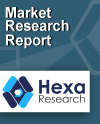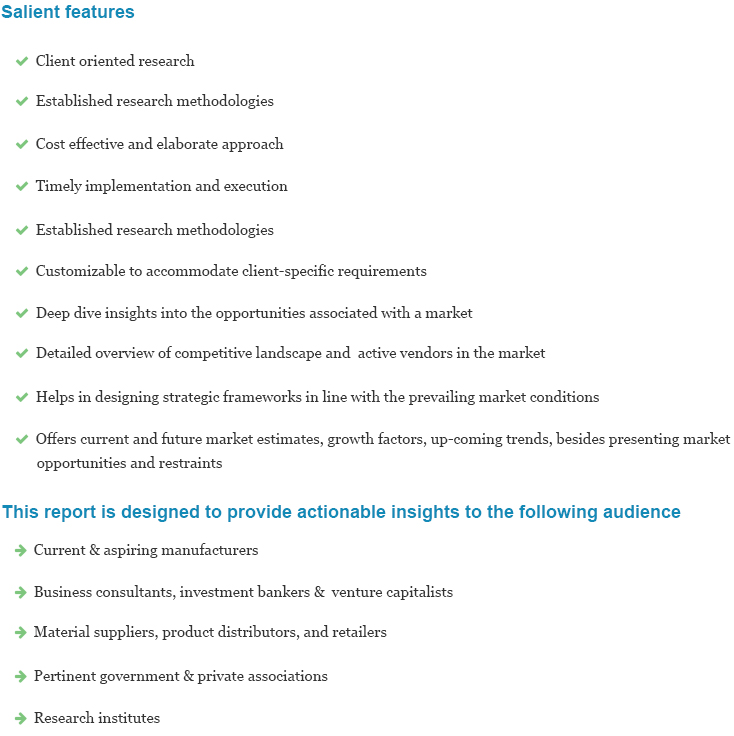
Animal Feed Enzymes Market Analysis, Market Size, Application Analysis, Regional Outlook, Competitive Strategies and Forecasts, 2015 To 2022
- Published: August, 2017
- Format: Electronic (PDF)
- Number of pages: 70
- Industry: Food & Beverages
The global animal feed enzymes market size is expected to witness tremendous growth over the coming years owing to growing meat consumption. These food supplements help in enhancing nutritional value in bodies of farmed animals, who do not receive sufficient value from regular meals. These nutrients include vitamins, amino acids, minerals, and fatty acids.
Improper nutrition in animals can lead to improper growth. Animal feed nutrition is not only influenced by these enzymes but also other factors, which include food presentation, hygiene, digestibility, and intestinal health. These products are widely used in animal husbandry. Consumers eat meat to enhance their daily nutrient content. Poultry products such as eggs are highly popular for their protein content and are widely used in cakes and confectionaries.
Meats from domesticated birds and cattle are consumed in regular meals in several parts of the world. Rise in the global population is, thus, working in favour of the market. Mounting cases of diseases among animals are expected to augment the market in the future. Frequent animal epidemics have made it imperative to look after cattle health and nutrition. Epidemics including swine flu and bird flu adversely impact the meat industry. Balanced diet through additional supplements can be an aid in controlling disease rate
Food outlets including Domino’s, McDonalds, Pizza Hut, and Subway have been expanding their network using franchise model. Meat is an essential component in their meals. These food joints have been setting high quality standards for meat requirement and therefore, anticipated to fuel the global demand for animal feed enzymes over the forecast period.
Growing inclination of consumers towards ready-to-eat and frozen food products is encouraging development of frozen meat. This, in turn, is also escalating the growth of the animal feed enzymes market. On the flip side, high costs of these enzymes coupled with low cost of natural substitutes such as fodder, maize, and corn can limit the growth of the market during the forecast period. In addition, some animals tend to show allergic reactions to these enzymes upon their unregulated consumption. Intestinal upsets and infections are some of the common symptoms seen in cattle.
Food agencies are playing a vital role in monitoring usage of these agents. Manufacturers are held directly responsible for safety of their consumers and, therefore, it is necessary to add these enzymes in permissible quantities. FDA is the governing body in the U.S federal state safeguarding public health.
As per the EU Regulation 1831/2003, all feed additives in the European Union market have to undergo approval process. Products undergoing approval as an additive usage are evaluated by the European Food Safety Authority (EFSA) and the European Reference Laboratory.
Criteria for evaluation includes animal safety and also its security with respect to consumers and factory workers. Additives denoting enhancement of zoo technical performance need to provide sufficient empirical data to confirm their statement.
Advent of improved refrigeration techniques have promoted export of meat to western countries from Central America, Europe, and Asia Pacific. This has given rise to many cattle breeding centres in Asia Pacific and Europe focusing on upbringing cattle for export purposes. This market trend is estimated to provide several growth opportunities in countries such as France, Australia, New Zealand, and Mexico.
Chemical composition of animal feed enzyemes can be classified into carbohydrase, protease, and phytase. Phytase is a commonly used chemical composition. Sensory, nutritional, and zootenical are some of the key purposes for which these enzymes are used. Sensory products are those that stimulate appetite and therefore, improve diet intake. Nutritional supplements provide specific nutrients including vitamins and amino acids. Zootechnical products do not give any significant benefits directly, but improve the diet value.
Europe is likely to account for a sizeable share in the global animal feed enzymes market over the forecast period on account of developed cattle breeding and dairy industries. The Mediterranean region is renowned for animal husbandry and established as a major market in Europe.
North America is projected to register significant growth during the forecast period on account of growing meat consumption. Asia Pacific is poised to observe rapid growth owing to increasing dependence of population on poultry products. Africa and South America are anticipated to exhibit sluggish growth with respect to other regions on account of lack of awareness and traditional animal food implementation methods.
Key players operating in the global arena are BASF Danisco, Adisseo, Alltech, DuPont, Kemin, Novozymes, Belden, and AB Vista, among others. Market leaders are involved in research and development activities in order to improve livelihood of farmers. For instance, DuPont provides unique solutions for several species, which includes poultry, pigs, and ruminants, which can increase milk yield and milk fat.

Choose License Type
- World's largest premium report database
- Transparent pre & post sale customer engagement model
- Unparalleled flexibility in terms of rendering services
- Safe & secure web experience
- 24*5 Research support service
